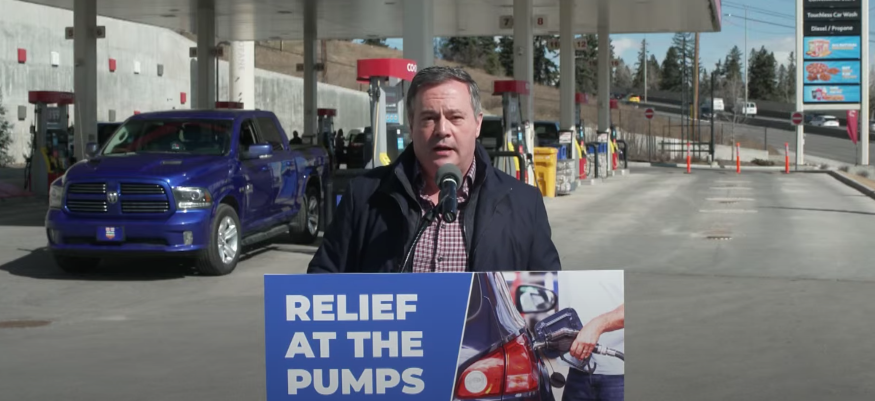The provincial government is no longer collecting the provincial fuel tax while oil prices are high.
Drivers will save the 13-cent provincial fuel tax on every litre of gasoline or diesel they purchase, a government media release said.
With the corresponding reduction in GST, the total savings is about $6.80 per tank for a compact car, $7.21 for a small SUV, $12.65 for a mid-size SUV, $18.50 for a large pickup truck, and $185.50 for a semi-trailer, the release said.
“Alberta’s government is pleased to implement a measure that will provide real economic relief to Alberta families and businesses alike. Elevated fuel prices don’t just impact Alberta drivers, they influence the price we pay for almost every service and product that relies on transportation to be rendered or delivered. With the provincial government’s intervention, all Albertans will now reap the benefits of money saved at the pumps and beyond,” Premier Jason Kenney said.
The measure will be in effect until at least the end of June, then the government will consider the future of the tax based on the price of West Texas Intermediate crude.
“We recognize the significant challenges rising inflation and high energy costs create for Alberta families and businesses. Alberta is already one of the most affordable provinces to live in, and this relief measure serves to reaffirm the Government of Alberta’s commitment to maintaining that affordability for anyone living or doing business here,” President of Treasury Board and Minister of Finance Travis Toews said.
The government is anticipating a $100 to $115 million decrease in fuel tax revenue for each of the first three months.
“Keeping commercial vehicles on our roads has been challenging because of factors like supply chain issues and driver shortages. Eliminating Alberta’s fuel tax will provide much-needed relief for industries so they can keep moving, remain profitable and help our economy grow,” Minister of Transportation Rajan Sawhney said.
Albertans will also see additional relief through other measures such as electricity rebates to eligible homes, farms, and businesses that were impacted by increased costs over the past several months.
A natural gas relief program will also give eligible consumers rebates when natural gas prices are over $6.50 per gigajoule starting in October.









